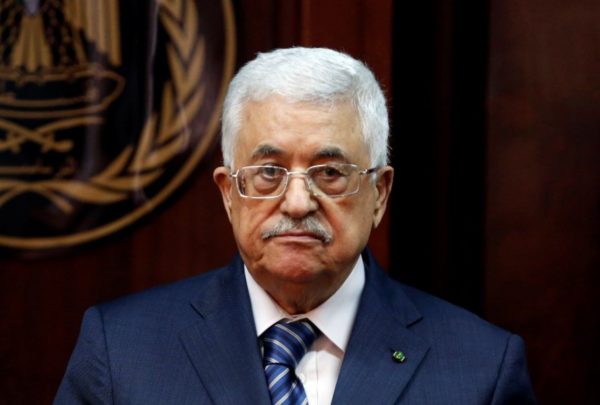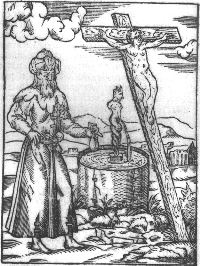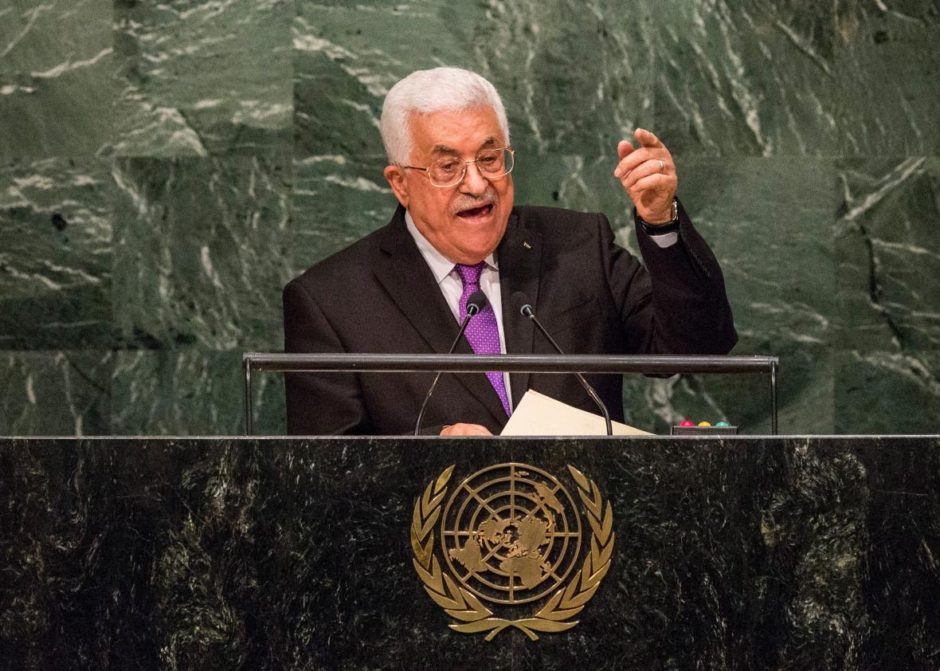In a speech delivered at the European Parliament in Brussels on June 23, Palestinian Authority President Mahmoud Abbas set back the cause of peace and tarnished his credentials as a leader by descending into the muck of antisemitism.
Abbas claimed that “a number of rabbis in Israel … made a clear announcement demanding that their government poison the water to kill the Palestinians.” He then posed a question: “Isn’t that clear incitement to commit mass killings against the Palestinian people?”

Less than a day after making this crude and outlandish accusation, Abbas retracted it, admitting it was “baseless,” saying he had not intended to “harm Judaism or to offend Jewish people” and condemning antisemitism.
Abbas’ flirtation with antisemitism, or blood libel, as Israel described it, is an ugly blot on his record.
Abbas was sucked into this needless morass after the Palestine Liberation Organization, which he heads, published the allegation on a website. The PLO retrieved this misinformation from a Turkish news agency report. According to Anadolu, “Rabbi Shlomo Mlma, chairman of the Council of Rabbis in the West Bank,” had issued an advisory allowing Jewish settlers to commit mass murder.
The reputable news agency Reuters examined the allegation but failed to authenticate it. Reuters could neither find the rabbi nor track down an organization called the Council of Rabbis in the West Bank.
It’s clear that Abbas’ staff took the false Turkish report at face value without even bothering to verify it, a shocking oversight that was nothing short of irresponsible and reckless.
The net effect was that Abbas circulated a vicious antisemitic canard that has been exploited since medieval times to defame, marginalize and murder Jews in European societies. The myth that Jews poison wells gained wide currency especially during the Black Plague period and the Nazi era in Germany.

Abbas’ inflammatory comments were picked up by the Palestinian press in the West Bank and the Gaza Strip and by the media in the Arab and Islamic worlds, creating yet more animus against Israel and Jews. Among Israeli Jews, Abbas’ remarks reinforced perceptions that the Palestinians are not ready for coexistence.
Did Abbas really think his foray into antisemitism would be conducive to the pursuit of peace?
Prime Minister Benjamin Netanyahu’s office rightly condemned him, saying “Palestinian incitement … fuels terror.”
But amid the sound and fury, the Israeli government conveniently neglected to mention the positive aspects of Abbas’s speech. Lest it be forgotten, Abbas said the Palestinian Authority supports diplomatic efforts to reach a two-state solution based on the pre-1967 borders and the Arab League peace initiative, which offers Israel an opportunity to normalize relations with its members.
Beyond paying lip service to a two-state solution, Netanyahu does nothing concrete to advance it and promotes the expansion of settlements in the West Bank. He and his cabinet ministers are basically satisfied with the status quo, which may well transform Israel into a binational state. They prefer conflict management to conflict resolution.
It’s a prescription for more strife and bloodshed. It’s a disaster waiting to happen.
In his speech in Brussels, Abbas also claimed that once Israel’s occupation of the West Bank ends, “terrorism will disappear, there will be no more terrorism in the Middle East, or anywhere else in thee world.”
It goes without saying that this was a surreal and absurd statement. As he must surely know, jihadist terrorism, as practised by Islamic State and Al Qaeda, is inspired by a whole host of reasons outside of Israel’s existence as a Jewish state. And the end of the Arab-Israeli dispute will not necessarily usher in a brave new world marked by universal amity and mutual understanding.
However, terrorism emanating from the West Bank may well decrease significantly should Israel agree to Palestinian statehood following direct talks with the Palestinian Authority.
Abbas would have been wise to focus his attention on this key aspect of the conflict instead of dabbling in cheap antisemitic rhetoric, which only hardens public opinion on both sides of the Arab-Israeli divide.
.
